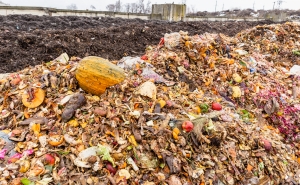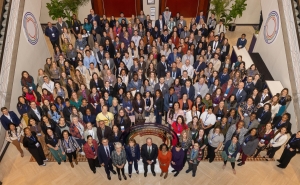Protecting Our Planet

You may be familiar with the adage that April showers bring May flowers. If that is the case, the flowers will be blooming in a spectacular way this April! The storms and torrential downpours that have blanketed this country so far this month seem fitting for “Earth Month.”
As the climate continues to warm, the risk to human health from extreme weather events will grow, exacerbating existing health-related inequities. There is indisputable evidence that weather events disproportionally impact older adults, children, low-income communities, and communities of color. Compared to more affluent communities and populations, these populations may not be able to prepare for, respond to, or deal with the impact of climate change on health. Specifically, because of the high cost of housing and structural barriers like racism, some populations may live in areas that are vulnerable to climate impacts, or have limited access to quality health care, or may not be able to easily to relocate after an extreme weather event.
It is essential that we use whatever policy tools we have in our toolbox to address climate change if we want to achieve health equity. National Public Health Week was April 1-7, 2024, and this year’s theme was "Protecting, Connecting, and Thriving: We are All Public Health." Each day of the week emphasized a theme, one of which was Climate Change. The webpage included several strategies to make our climate healthier including policies that invest in healthy transportation and community design, increase affordable and energy-efficient housing, and support the transition to renewal energy.
On April 22 the world will celebrate Earth Day, which was established in 1970 by U.S. Senator Gaylord Nelson to create a healthier environment by protecting our planet and its resources. Once again, we will have an opportunity to think critically about our planet, climate, and health. What will you do this Earth Day? Will you continue to celebrate the 70-degree temperatures that came early for many of us or will you, like me, lament the fact that the earth is getting warmer and the impacts are palpable?
I don’t know about you, but I am concerned for the future of our planet. I look at all the young people around me and wonder how they will experience the world as they age. Will wildfires, droughts, or heat waves become a daily occurrence for them? Will extreme weather events become so common that we no longer talk about a climate crisis?
All of us can help make our climate healthier. Faculty in the department of Health Policy and Management at the Bloomberg School are working to make sure that the potential health and equity impacts are illuminated when making decisions in sectors that could impact climate, including transportation and energy.
What about you? What will you do?
Keshia Pollack Porter, PhD ’06, MPH is Chair of the Department of Health Policy and Management at the Johns Hopkins Bloomberg School of Public Health.





